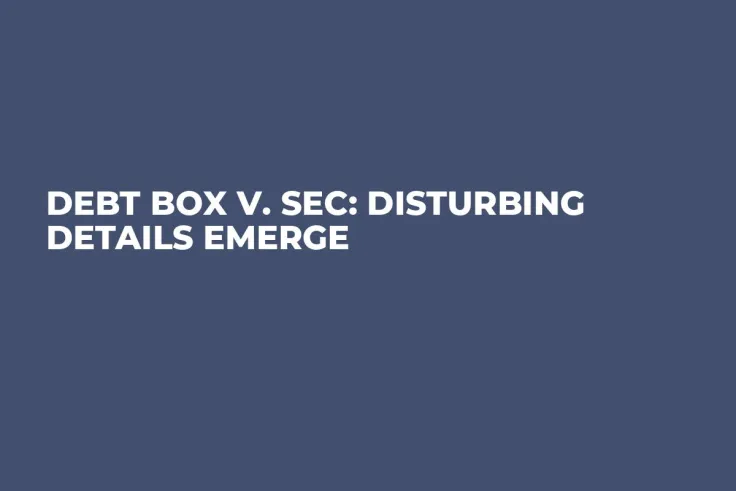
Disclaimer: The opinions expressed by our writers are their own and do not represent the views of U.Today. The financial and market information provided on U.Today is intended for informational purposes only. U.Today is not liable for any financial losses incurred while trading cryptocurrencies. Conduct your own research by contacting financial experts before making any investment decisions. We believe that all content is accurate as of the date of publication, but certain offers mentioned may no longer be available.
The ongoing legal clash between the Securities and Exchange Commission (SEC) and Debt Box has brought to light alarming revelations, leaving many questioning the conduct of the regulatory body. Prominent XRP lawyer John E. Deaton has spoken out, echoing sentiments of government overreach and accusing the SEC of intentional misconduct.
SEC acknowledgment of misleading statements
The SEC contends that Debt Box cheated investors out of over $50 million. Though its primary charges remain, the SEC confessed in December that its legal counsel mistakenly made false statements during a July 28 hearing that permitted it to obtain a restraining order, asset freeze and other limitations against Debt Box.
In response to the court's order to show cause, the Debt Box Defendants filed a reply, stating that the SEC's Salt Lake City Regional Office staff was aware of the inaccuracies but chose not to correct them for months, causing harm to the defendants and third-party entities globally.
Impact on Debt Box community
The consequences of the SEC's actions were not limited to legal ramifications but had a profound impact on the Debt Box community. A startling revelation that arose is that the Temporary Restraining Order (TRO) led to the shutdown of the Debt Box platform, affecting over 300,000 users in more than 130 countries. The market value of the associated token plummeted by more than 56%, resulting in financial losses for token holders who were not involved in the alleged wrongdoing.
Additionally, the personal toll on the Debt Box defendants, including Jason Anderson, Jake Anderson, Schad Brannon and Roy Nelson, was profound. Their homes were visited by armed U.S. Marshals and attorneys serving court papers and initiating asset searches. The freezing of bank accounts, loss of business relationships and psychological distress disrupted both their personal and professional lives.
Interestingly, the Debt Box case has parallels with another high-profile legal battle, LBRY v. SEC. In 2022, the SEC filed suit against the blockchain-based file-sharing network LBRY, alleging violations of federal securities laws related to the sale of its native LBRY credits (LBC). LBRY maintained that LBC was not a security, but a New Hampshire Judge ruled in favor of the SEC in November, and the final ruling was filed on July 11. Following the ruling, LBRY announced it would shut down.
 Vladislav Sopov
Vladislav Sopov Dan Burgin
Dan Burgin